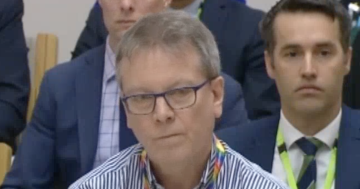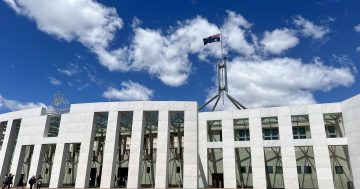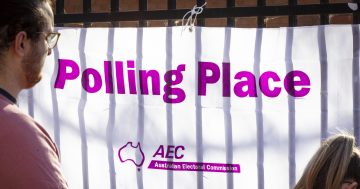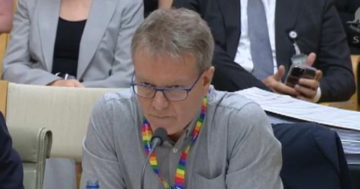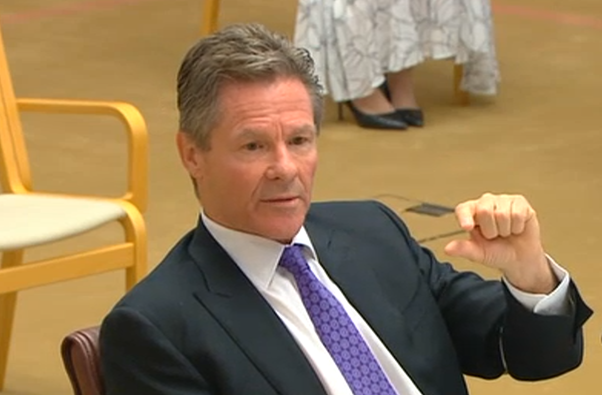
APS Commissioner Peter Woolcott said the public service would continue to be nonpartisan. Photo: Screenshot.
Australian Public Service Commissioner Peter Woolcott has told Senate Estimates that getting the balance right promoting the Voice to Parliament referendum is a primary focus in what he described as an “emotional debate”.
Under questioning from Nationals Senator Bridget McKenzie, Mr Woolcott assured the committee the Australian Public Service would be acting professionally and in a non-partisan way in the lead-up to the referendum.
He said common sense would be used.
“I’ve talked about the three [aspects]: the need to support government as best we can with regard to policy and advice, and the need to make sure that we have workplaces where First Nations people are comfortable,” the Commissioner said.
“And three, impartiality is actually fundamental to our public service … We cannot walk away from the fact that public servants are not advocates. That’s a matter for government.
“We deliver for government and we advise government.”
Senator McKenzie pressed further, wanting assurances that public service bureaucrats would not be acting in a partisan manner.
“What is the penalty for department secretaries or agency heads for taking a view on either side of the forthcoming referendum?” she asked.
But the Commissioner would not be drawn.
“I can’t get into hypotheticals,” he replied.
Asked whether he had reminded agency bosses it was against the APS Code of Conduct to allow promotional material or internal messaging in the workplace for either side of the debate, Mr Woolcott repeated his faith in the professionalism of public servants.
“I don’t think I need to do that. I think we need to provide some overall guidance,” he said.
“Agency heads, they are sophisticated operators. They understand the context in which they’re operating.
“They understand the Public Service Act and they understand the code [of conduct].”
The government will introduce legislation later this year to hold a referendum to enshrine an Indigenous voice to parliament in the Australian Constitution.
Senator McKenzie has said she will be voting against the Voice.
The Commissioner and Public Service Minister Katy Gallagher also pointed out that the former Coalition government’s decision to not allow public servants to replace Australia Day, the Queen’s Birthday or Anzac Day public holidays with an alternative day off was never implemented.
The order was made on the eve of last year’s election and Labor’s win meant the status quo was reinstated.
The estimates hearing also heard that the APS gender pay gap could be closed if more men were employed in lower classifications.
Assistant APS Commissioner Nicole Steele said work on the issue had just been completed, with one finding being that the number of women employed at lower levels was contributing to the gender pay gap.
“We have a very high proportion of women at the lower classification levels,” Ms Steele said.
“If we balanced that out with men, the gender pay gap would reduce from 6 per cent to 0.4 per cent … It’s actually about the men [and] balancing out men and women at the lower levels.
“If we actually keep promoting, we see the gender pay gap actually increasing.
“It’s more about the disproportionate number of females at the lower end of the scale that’s driving it.”












